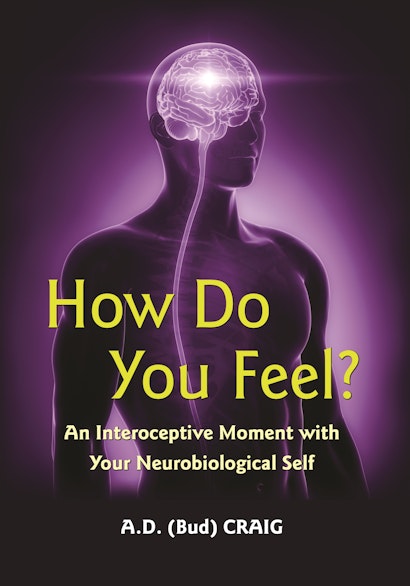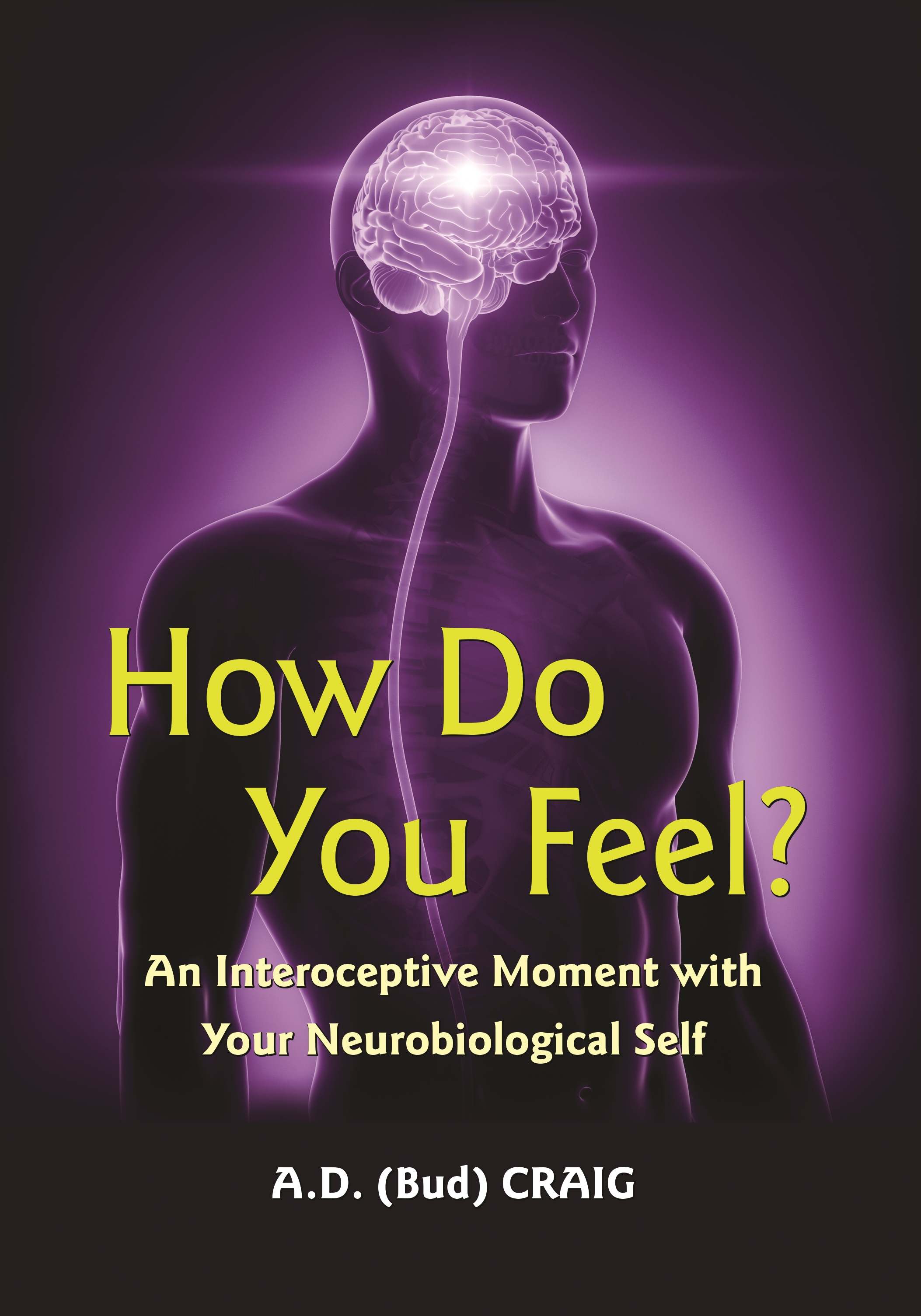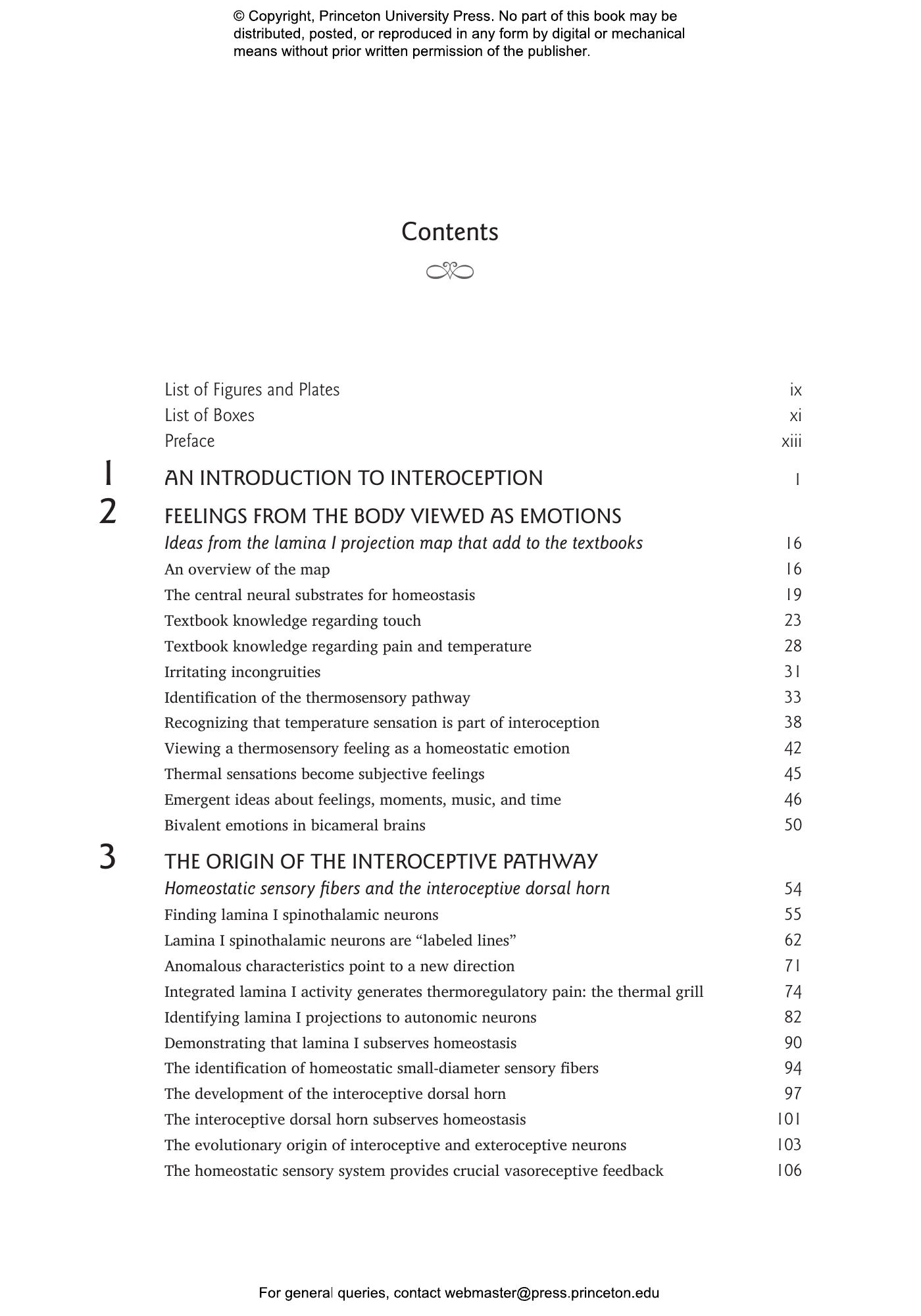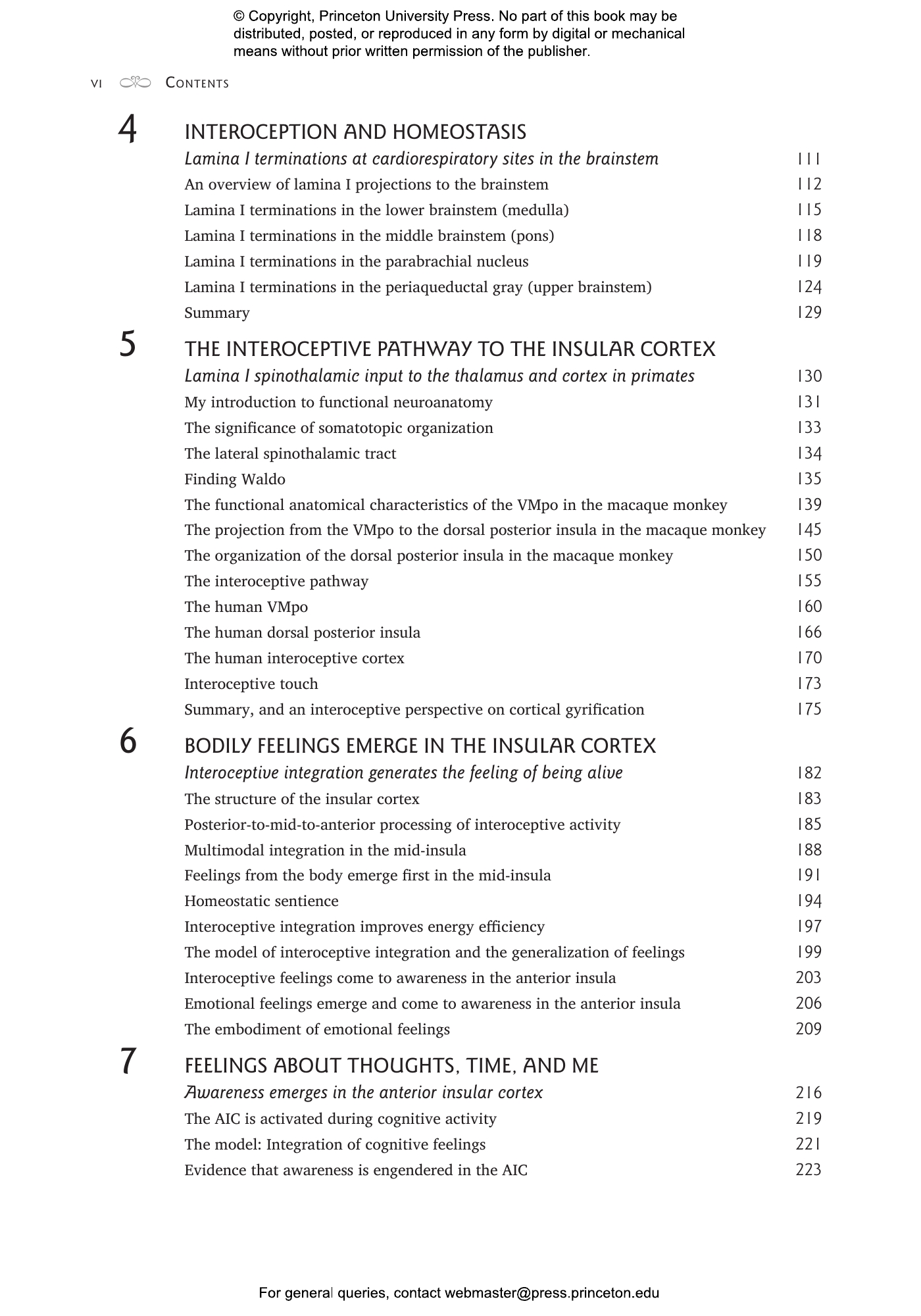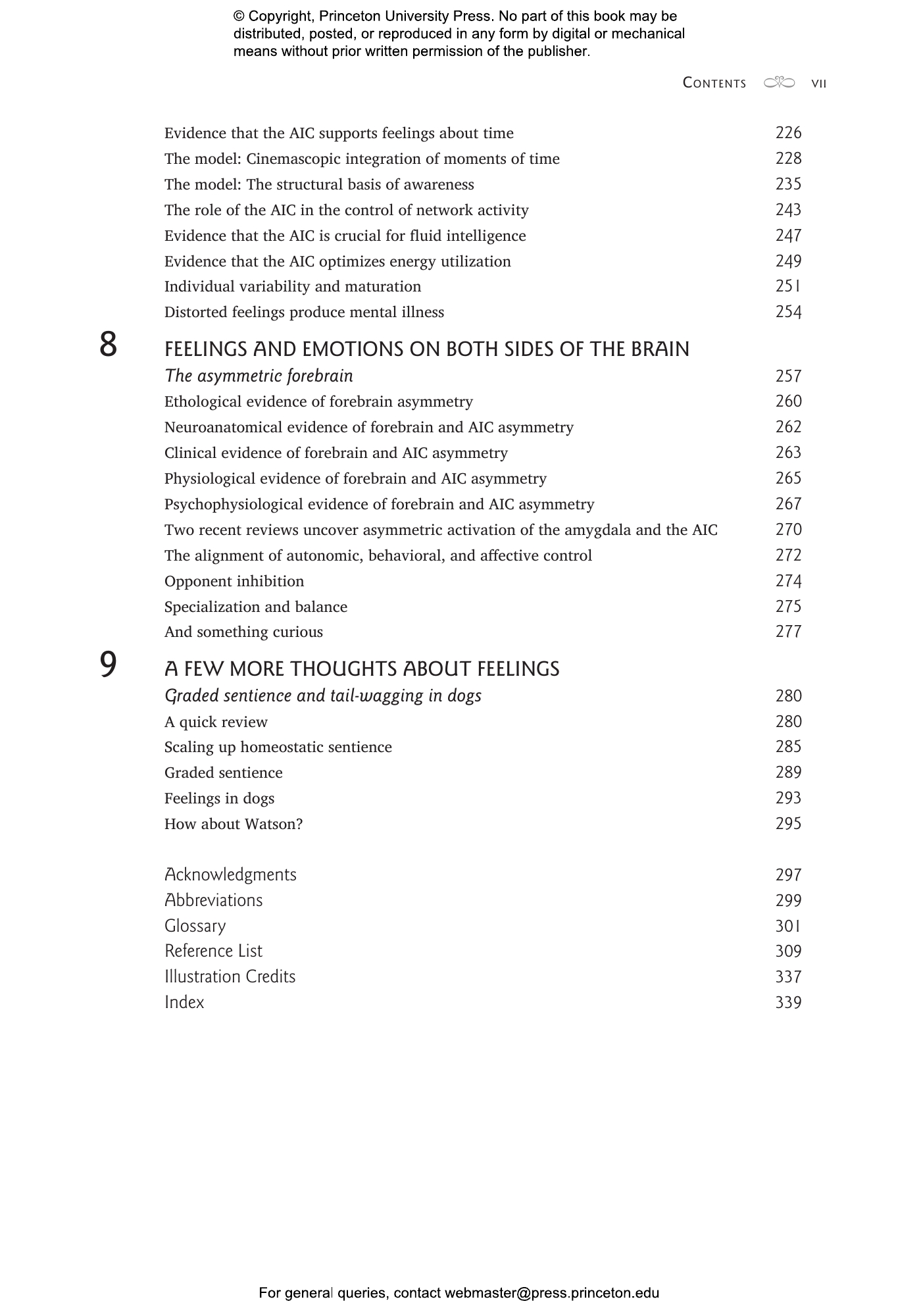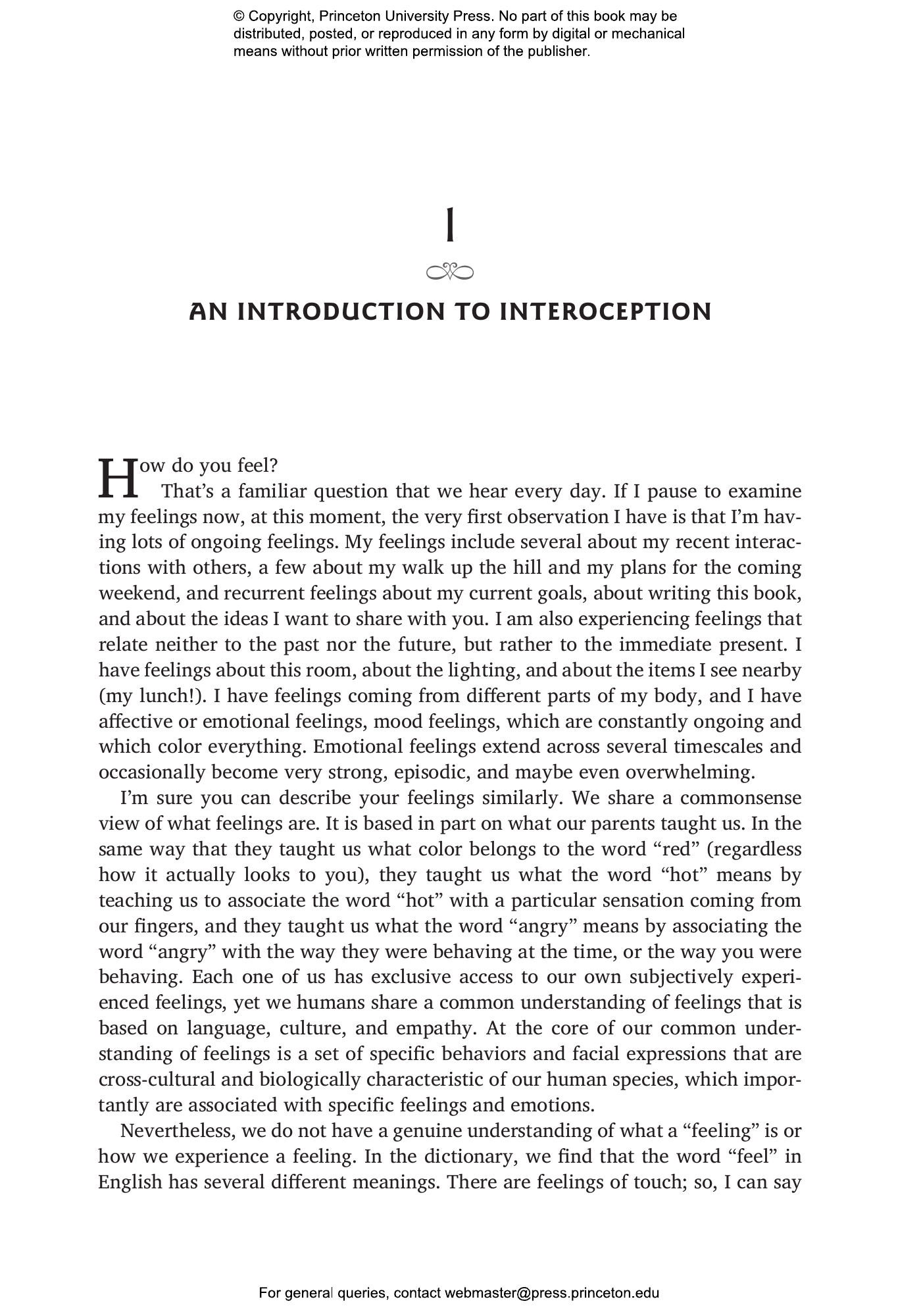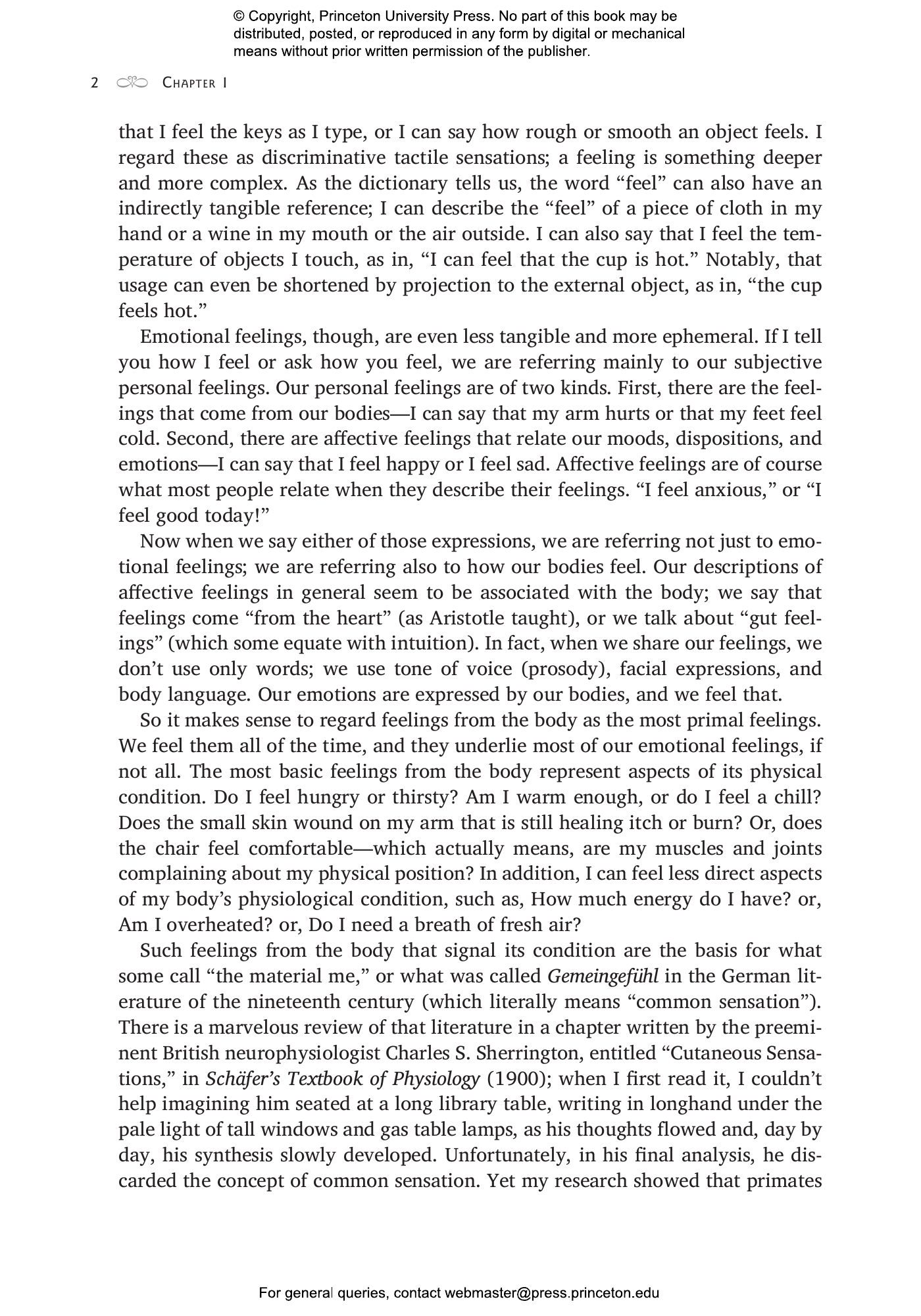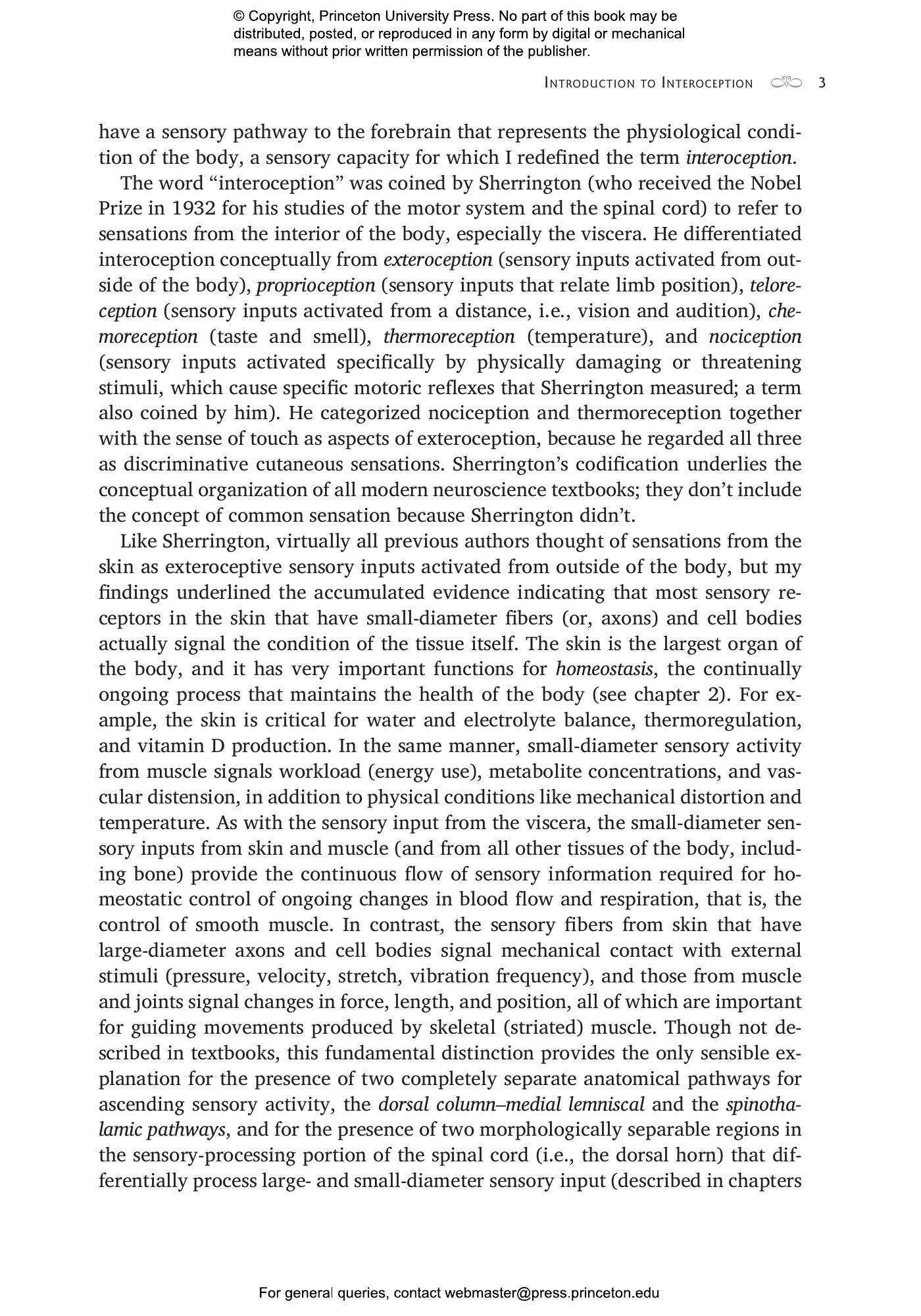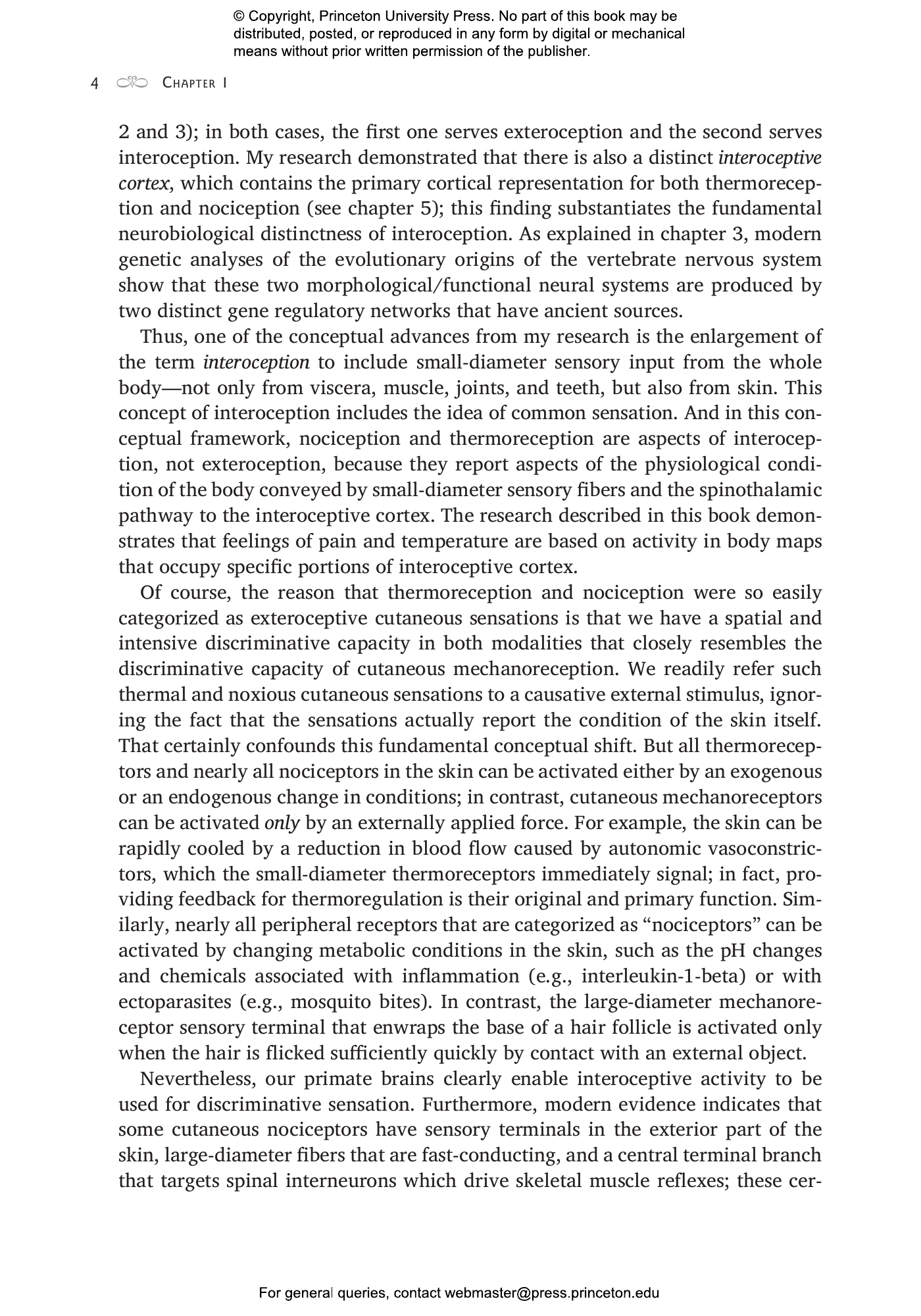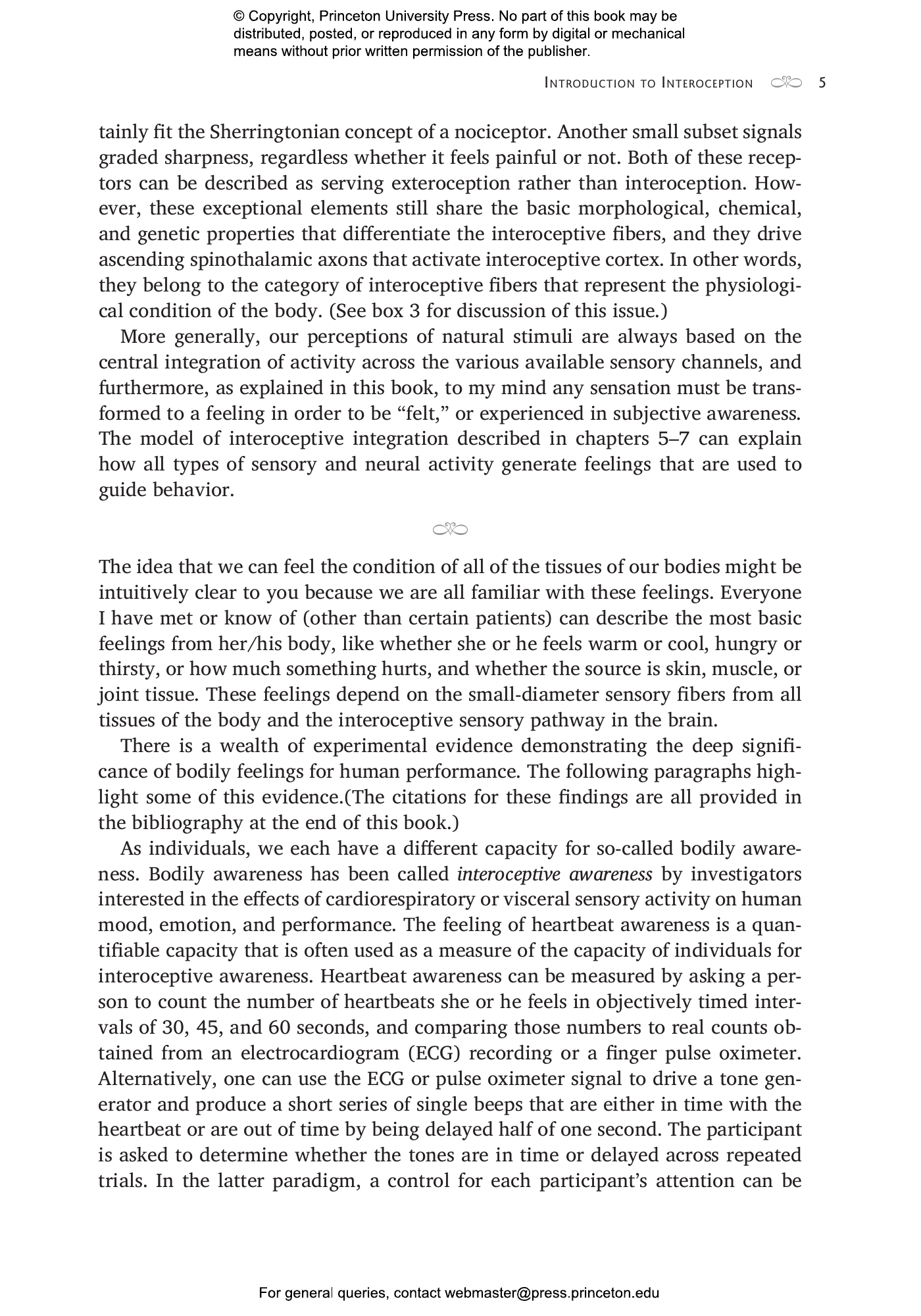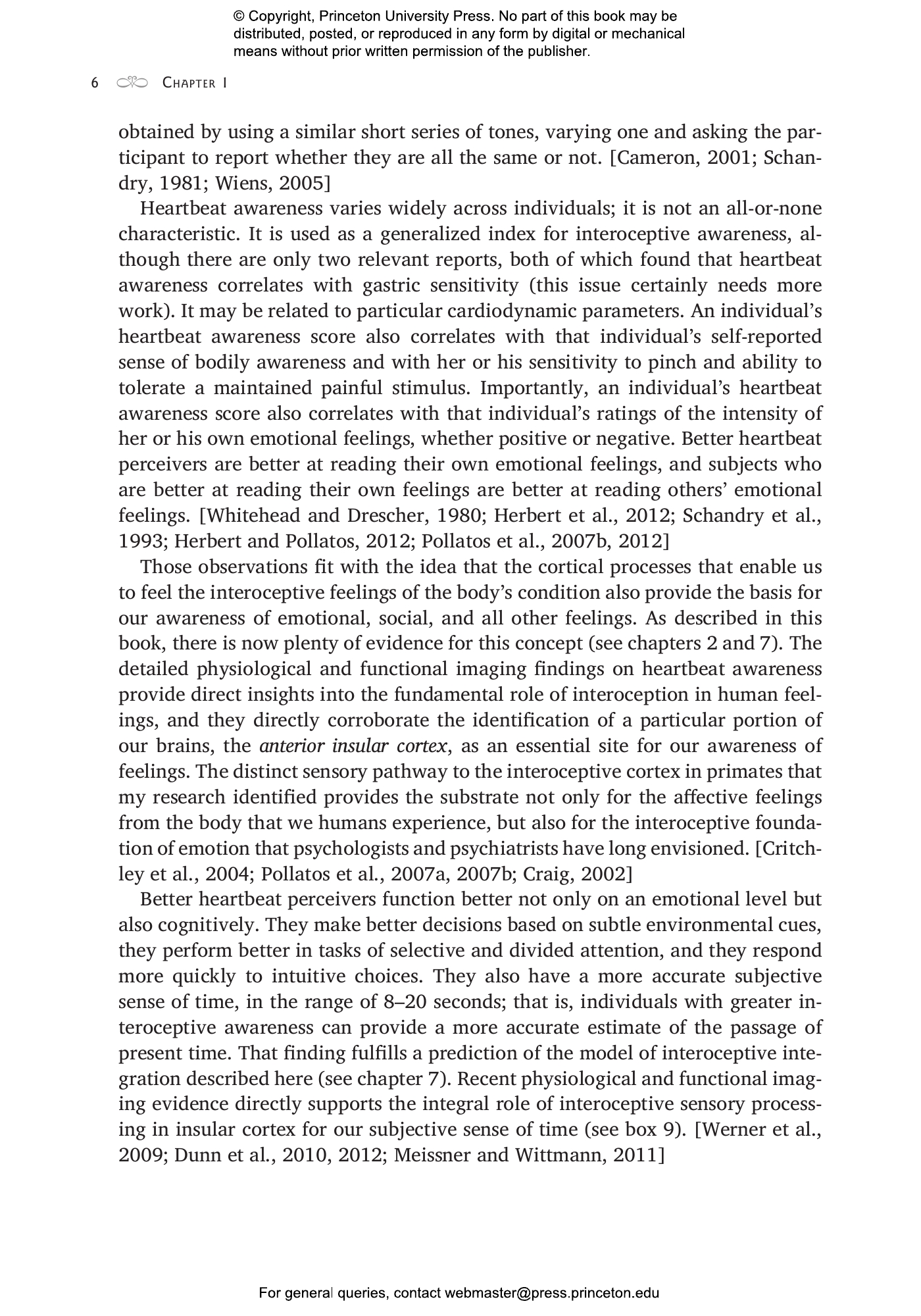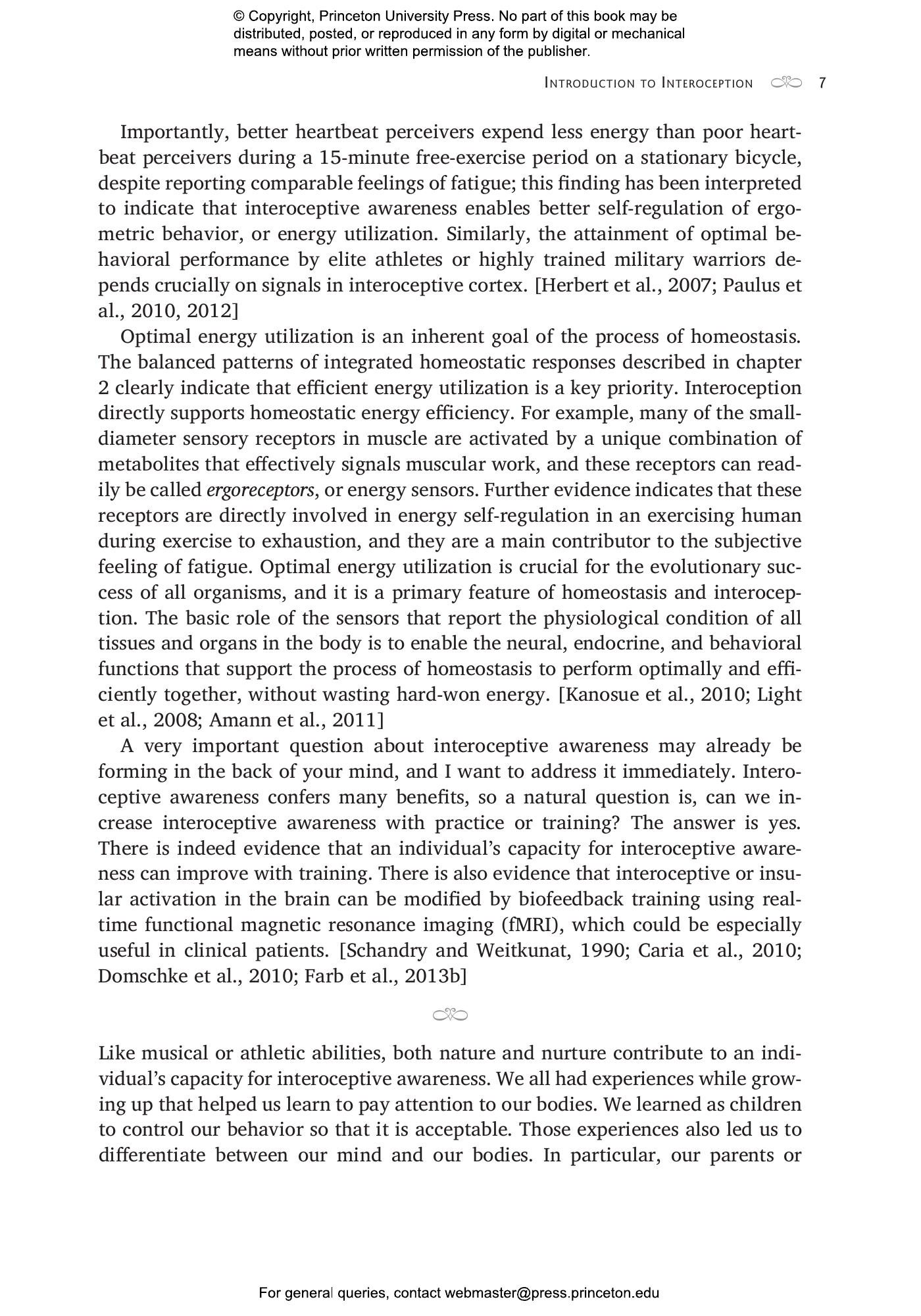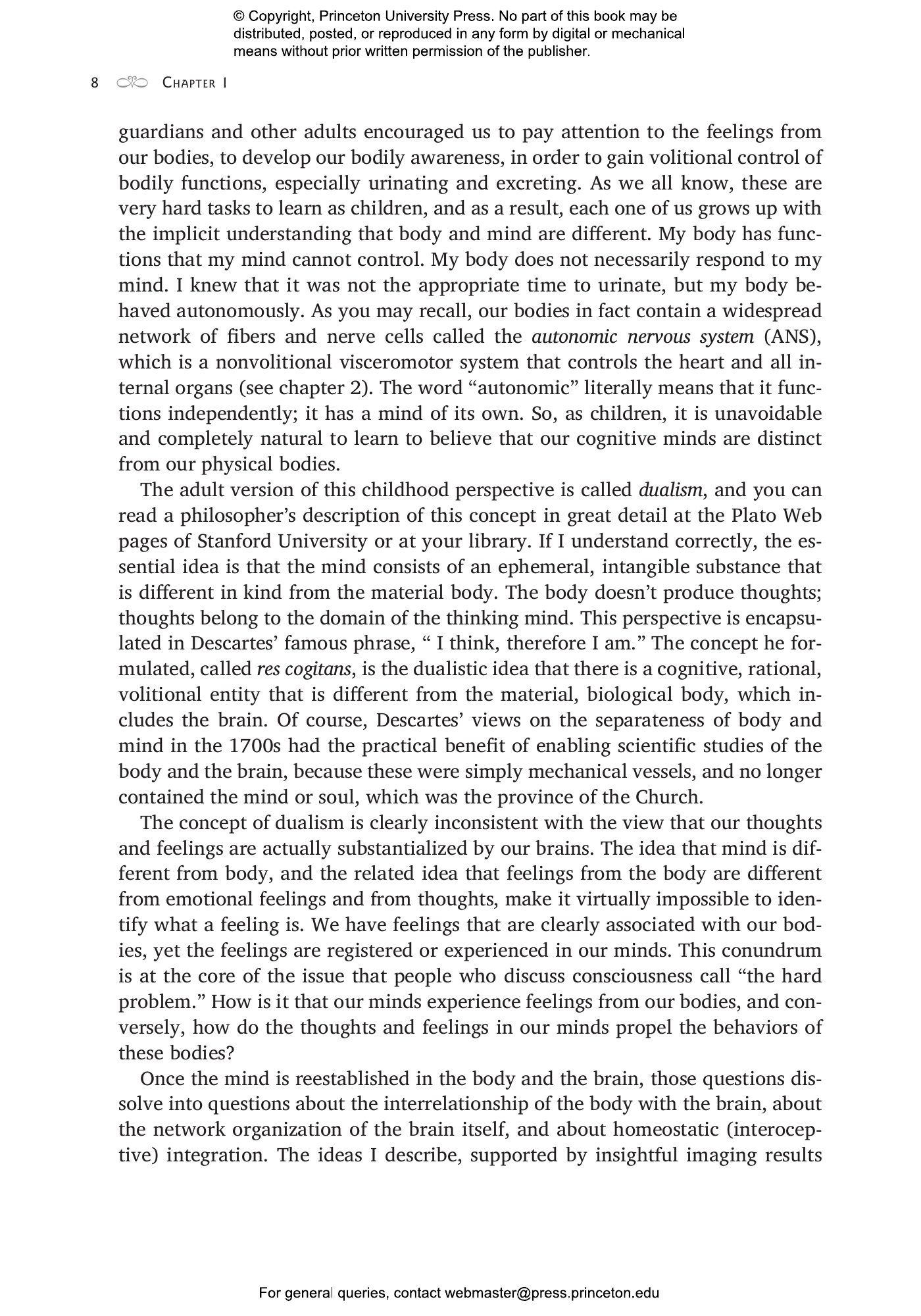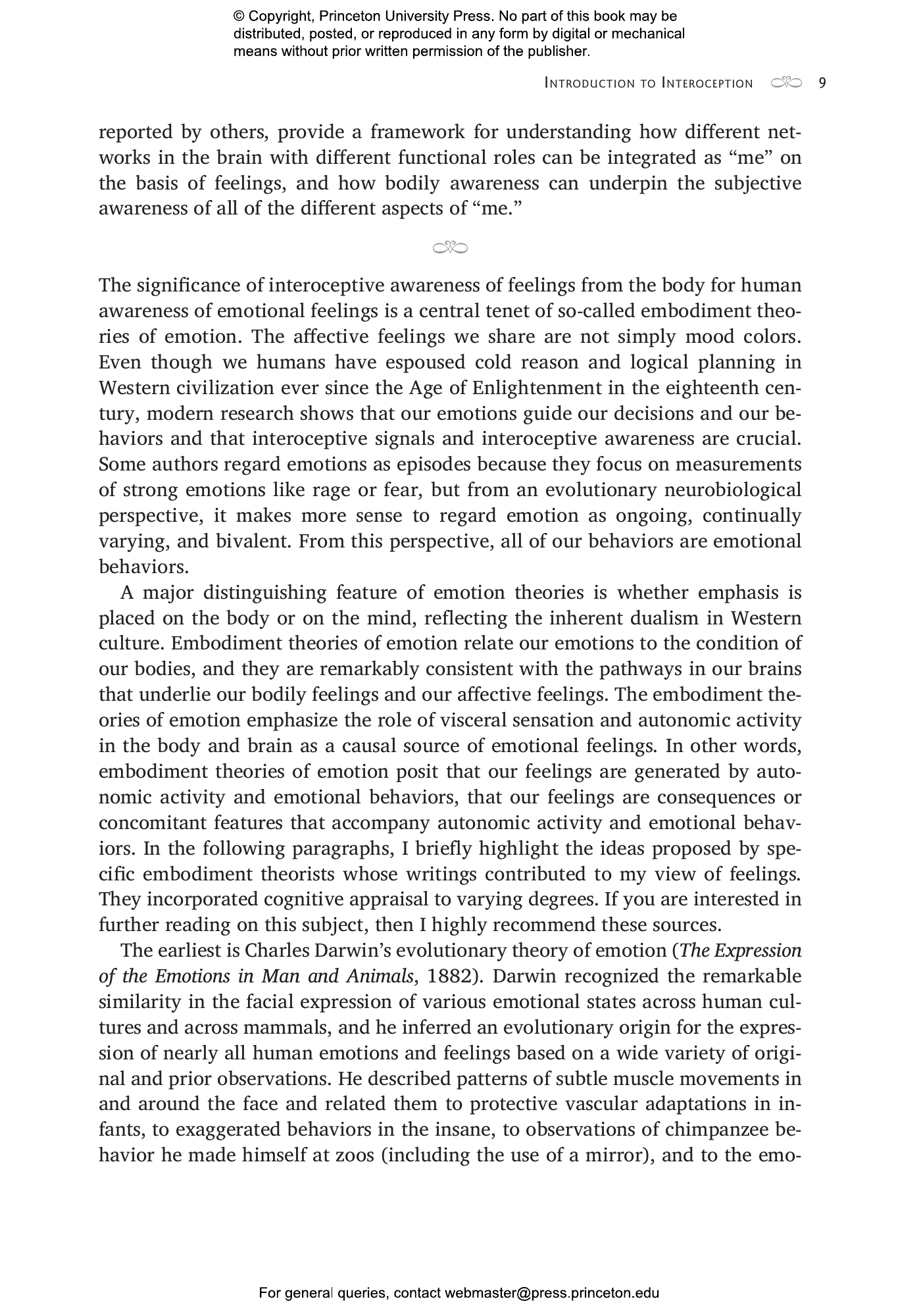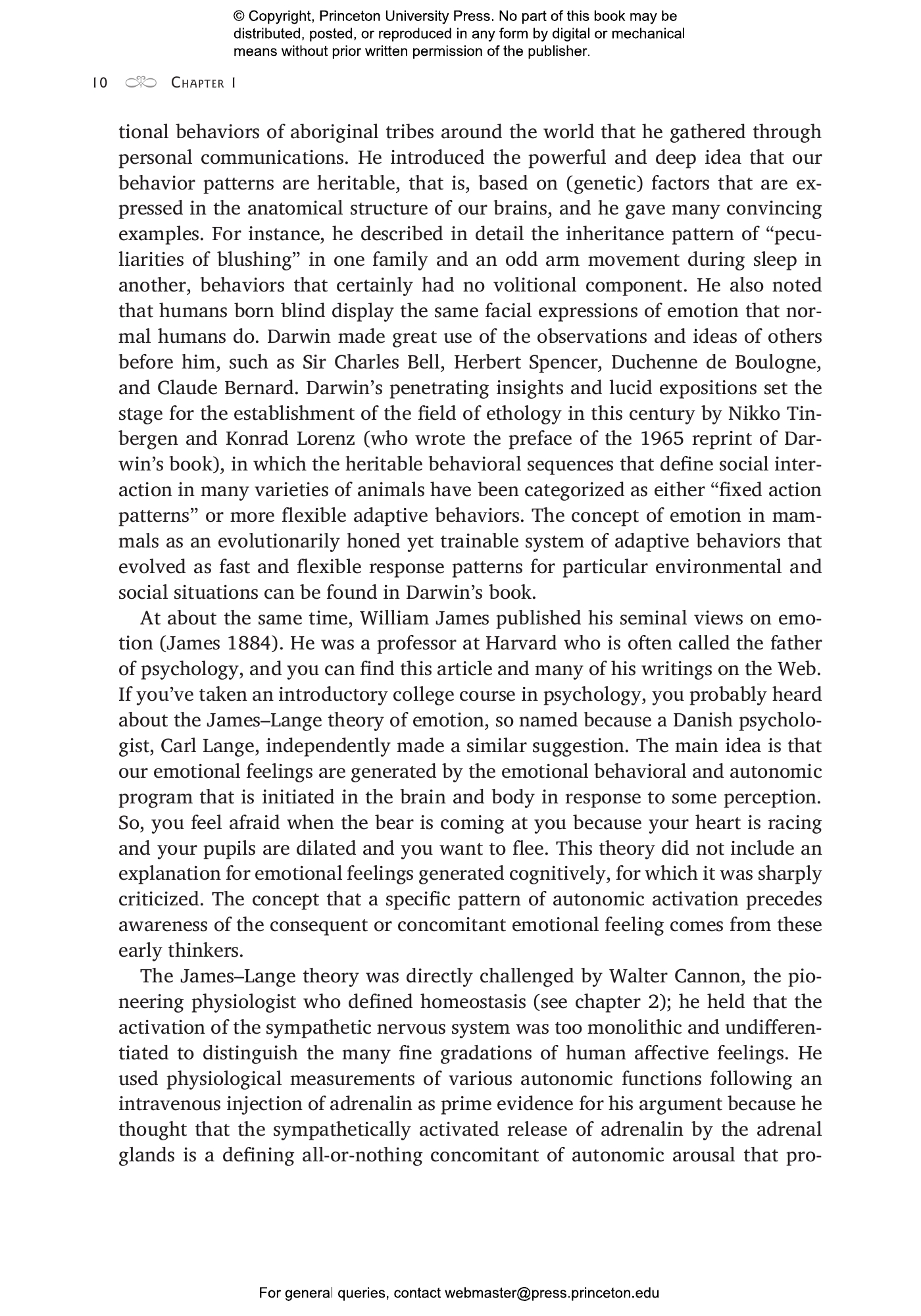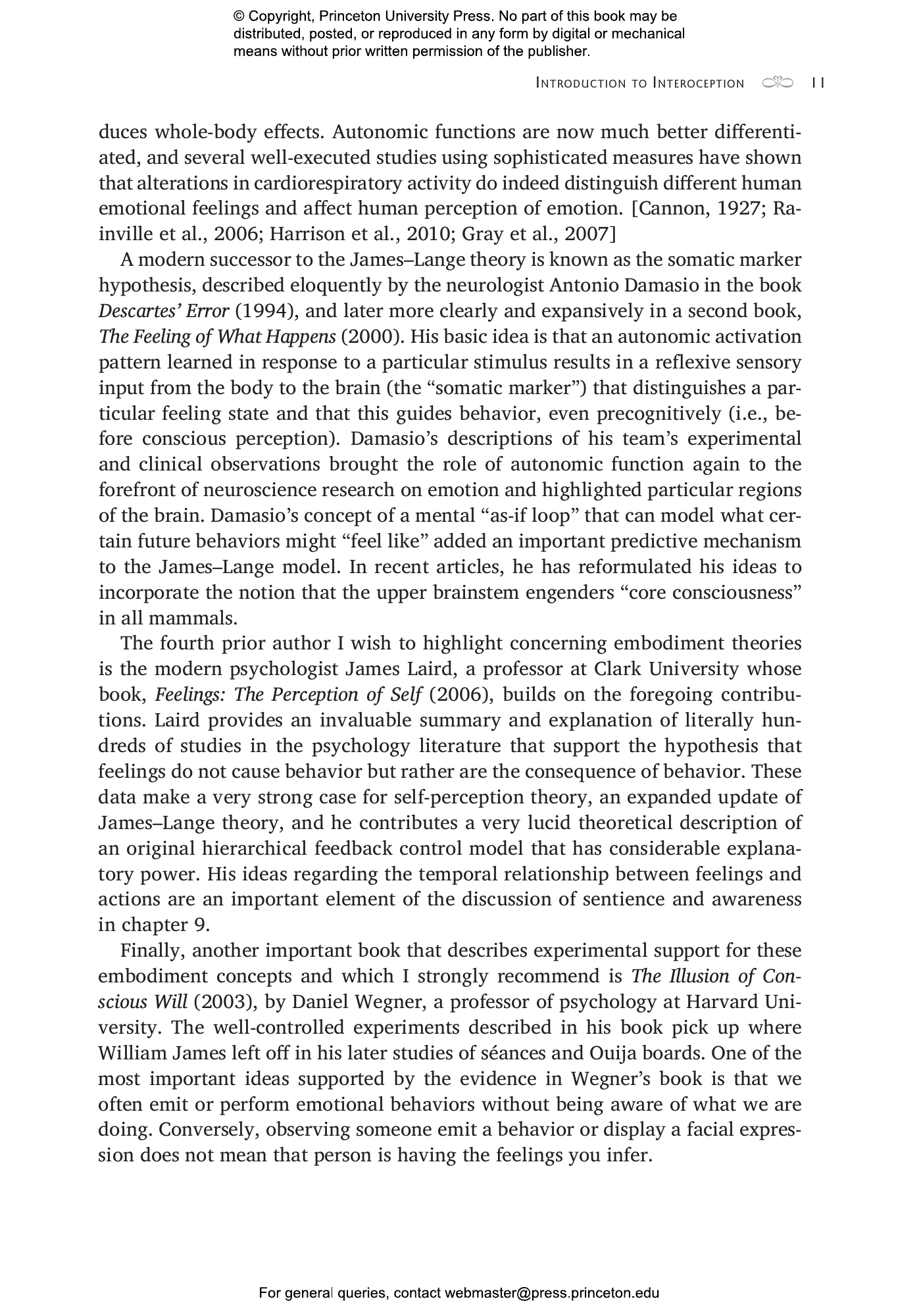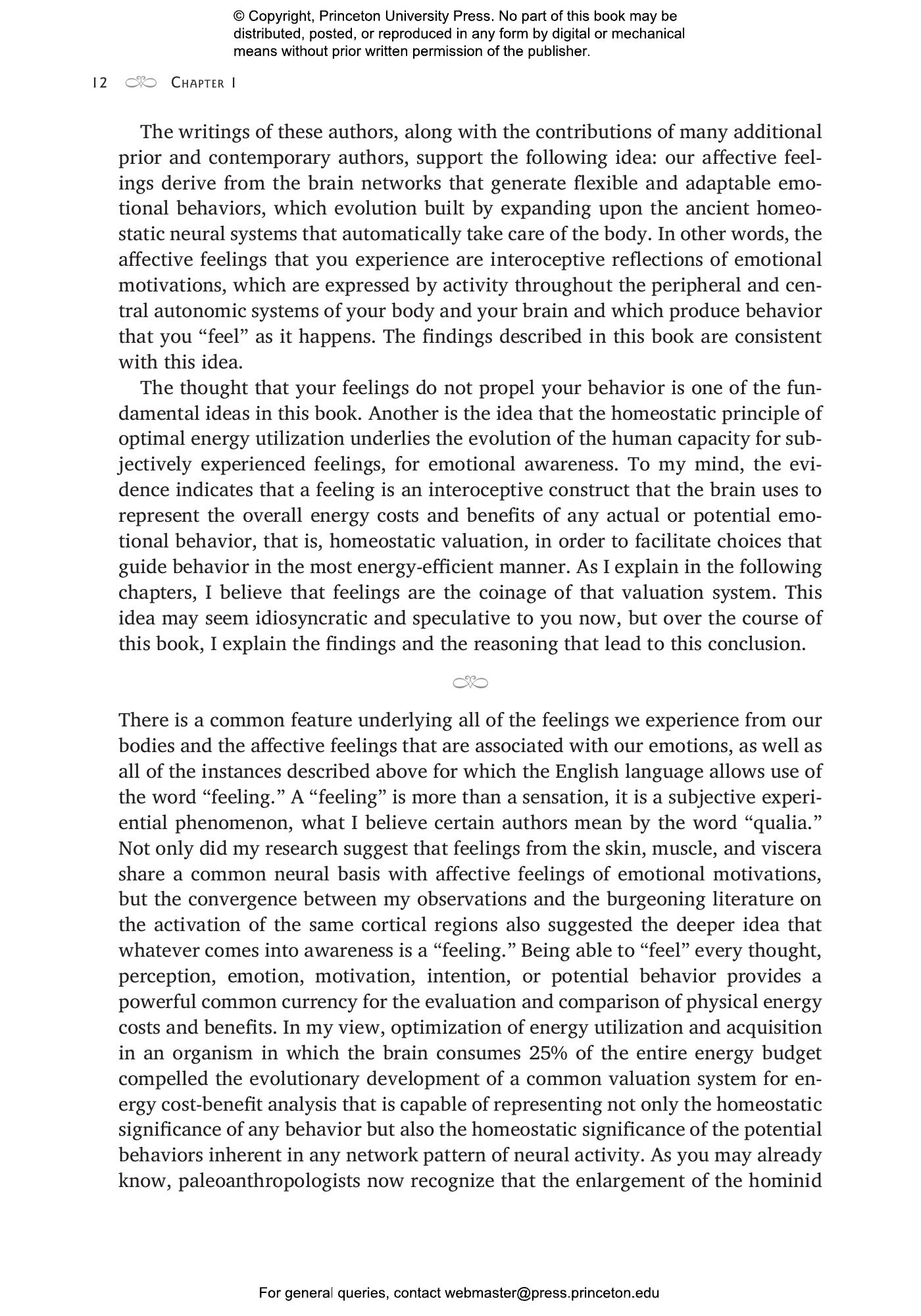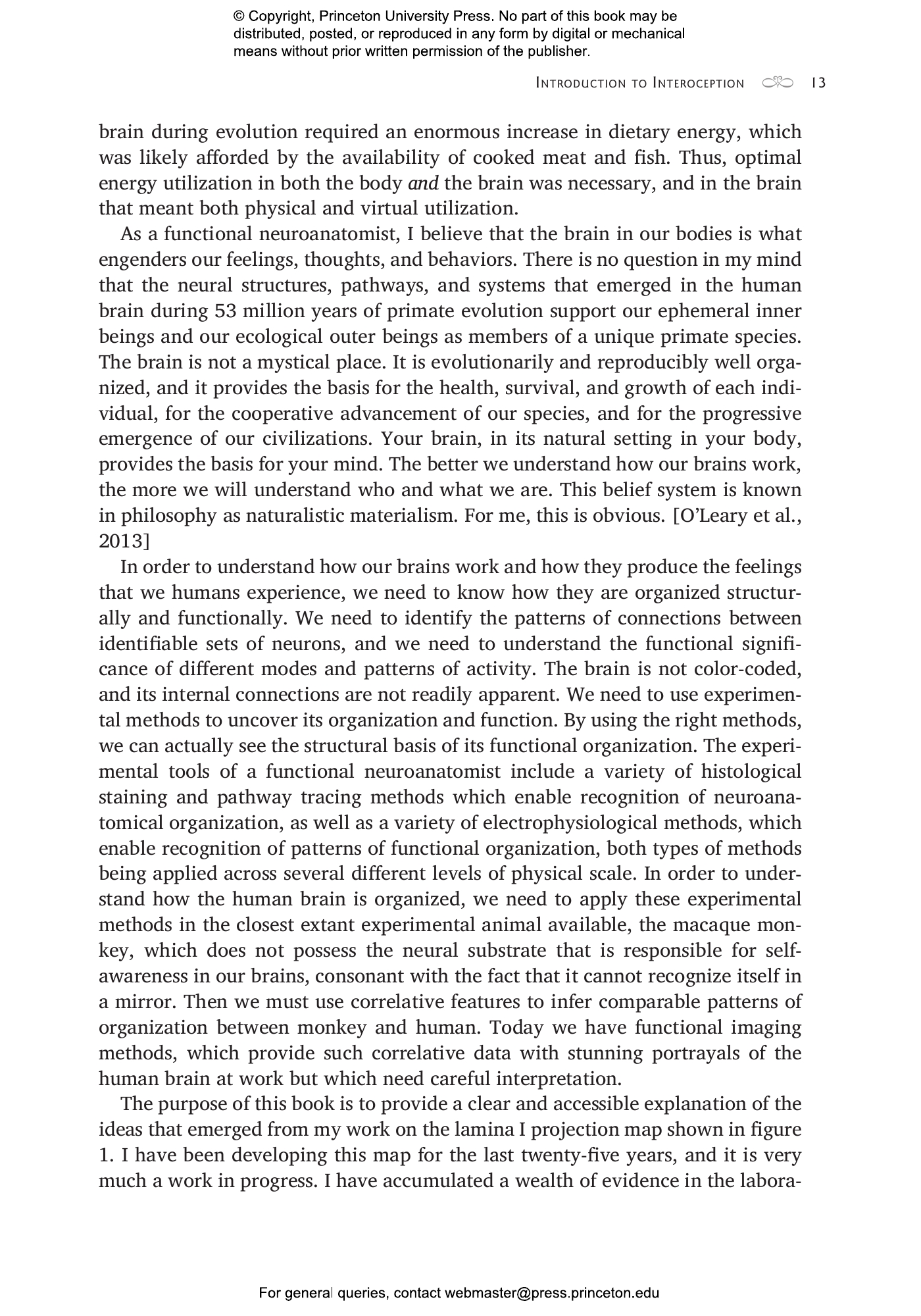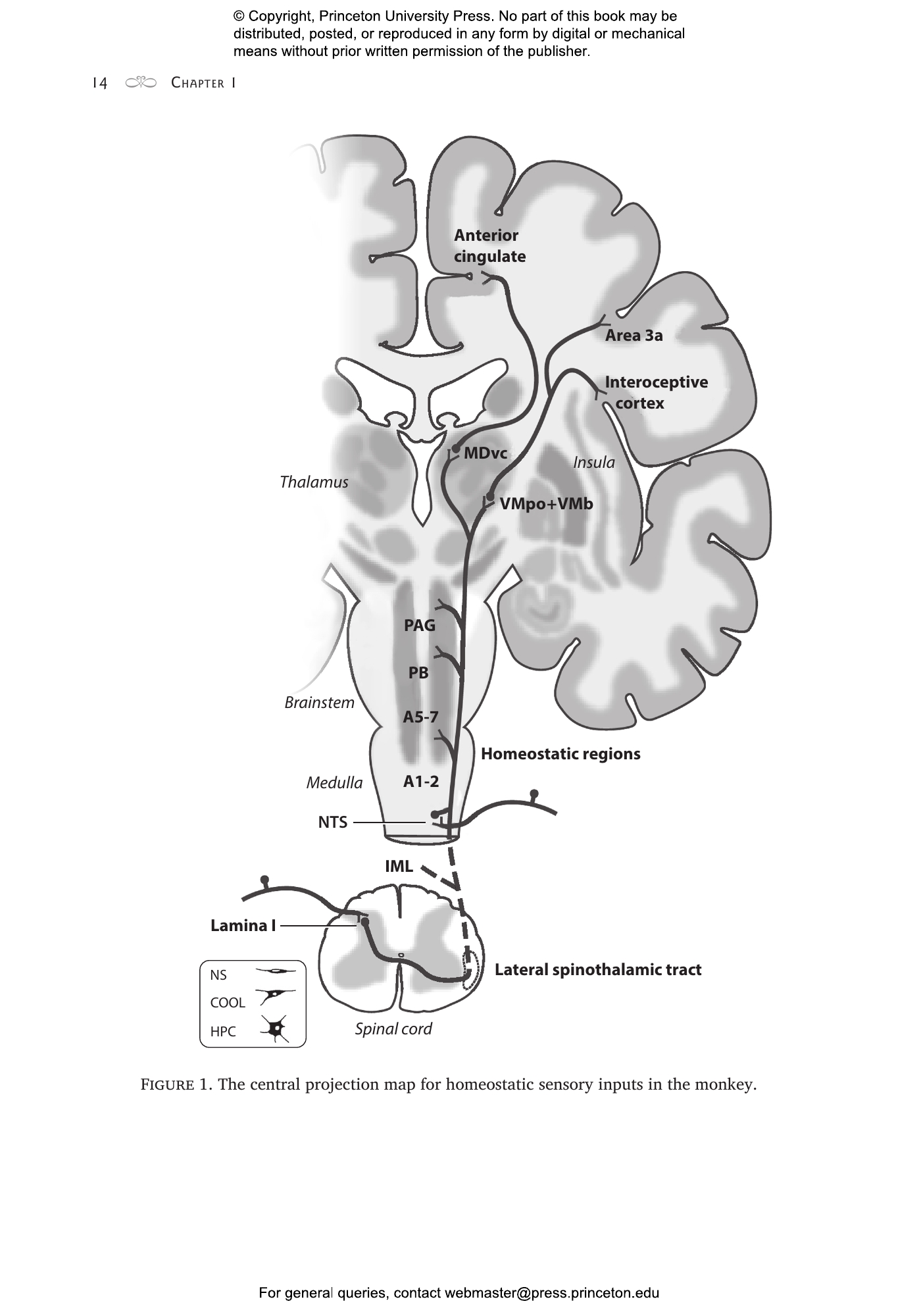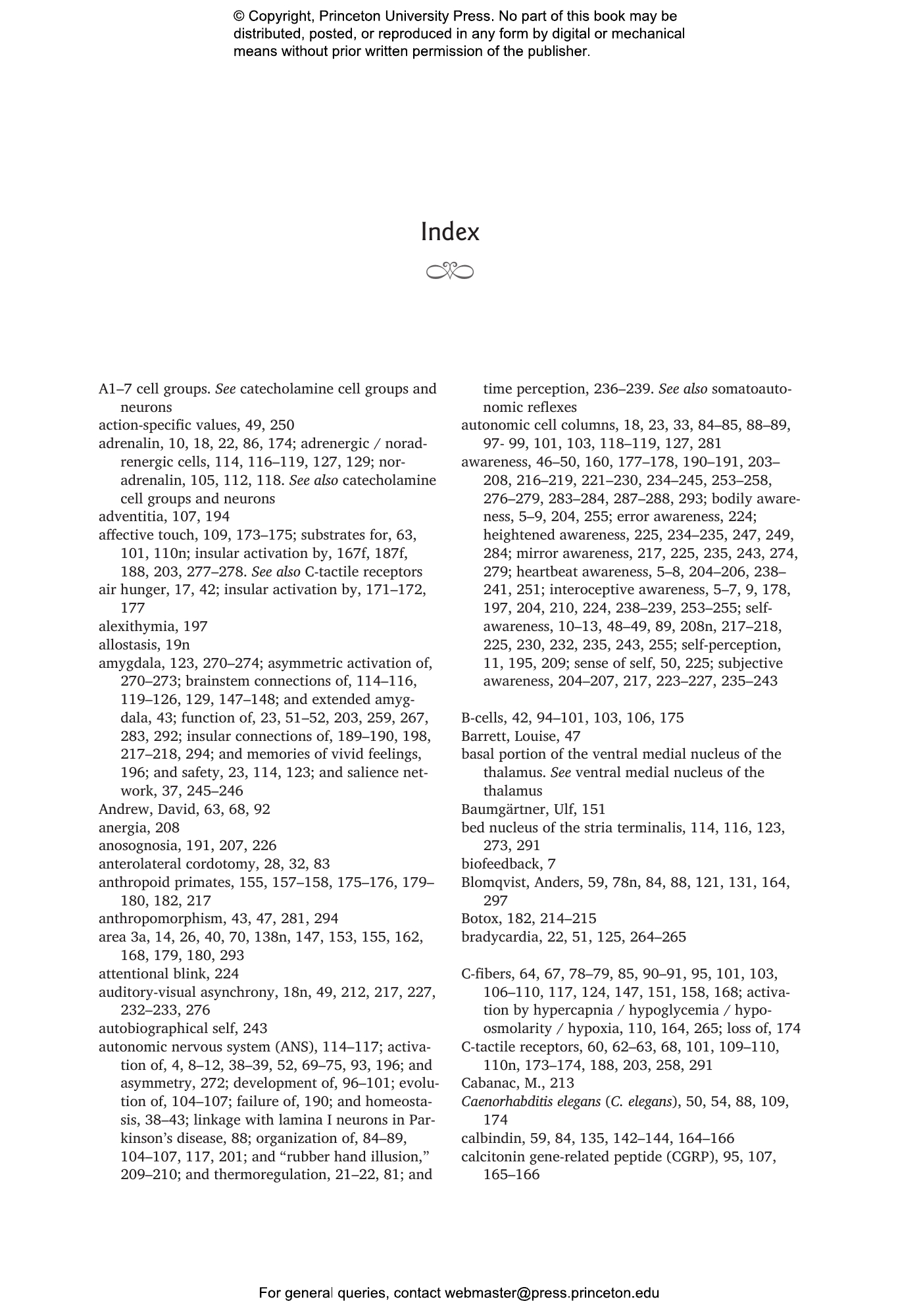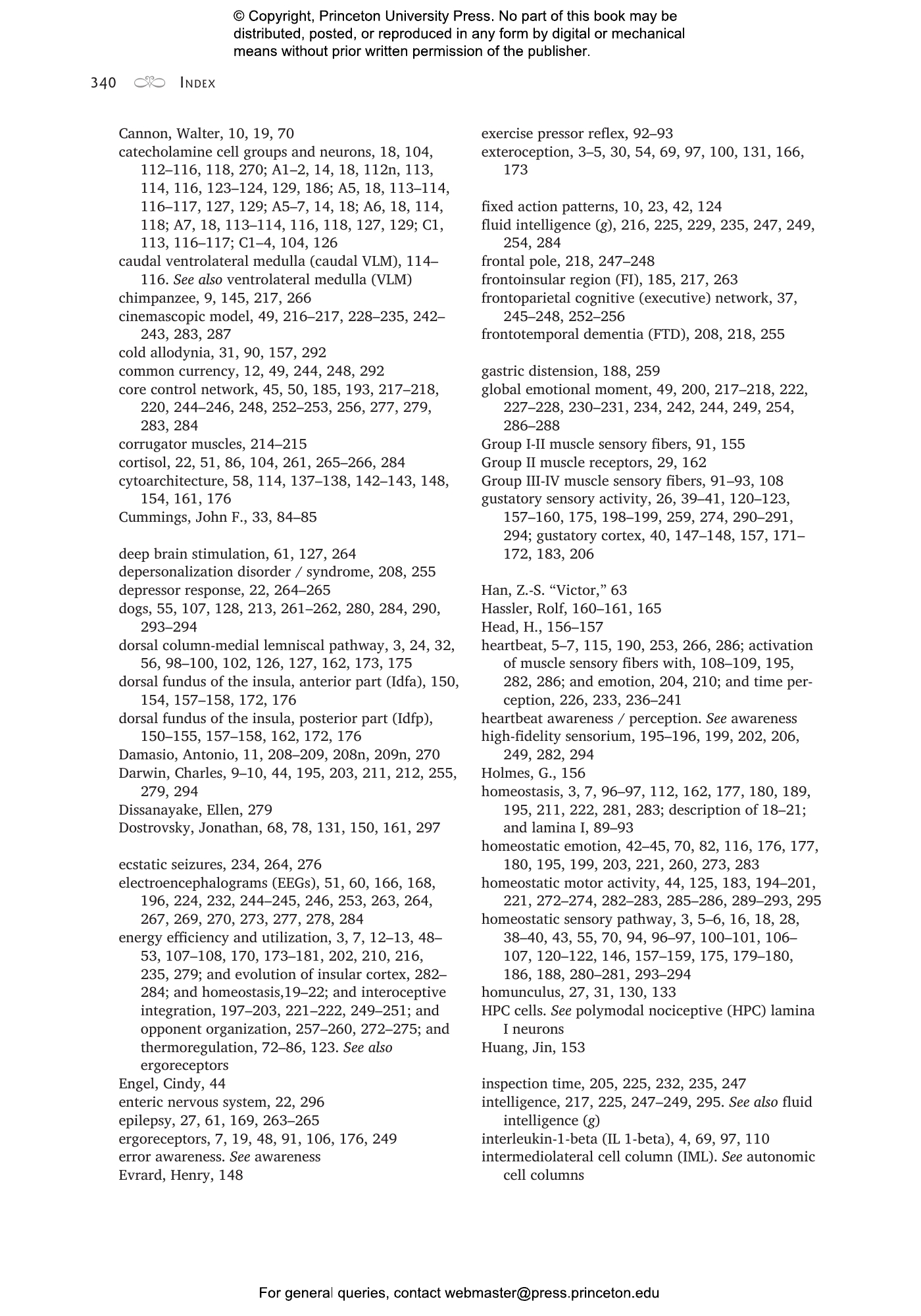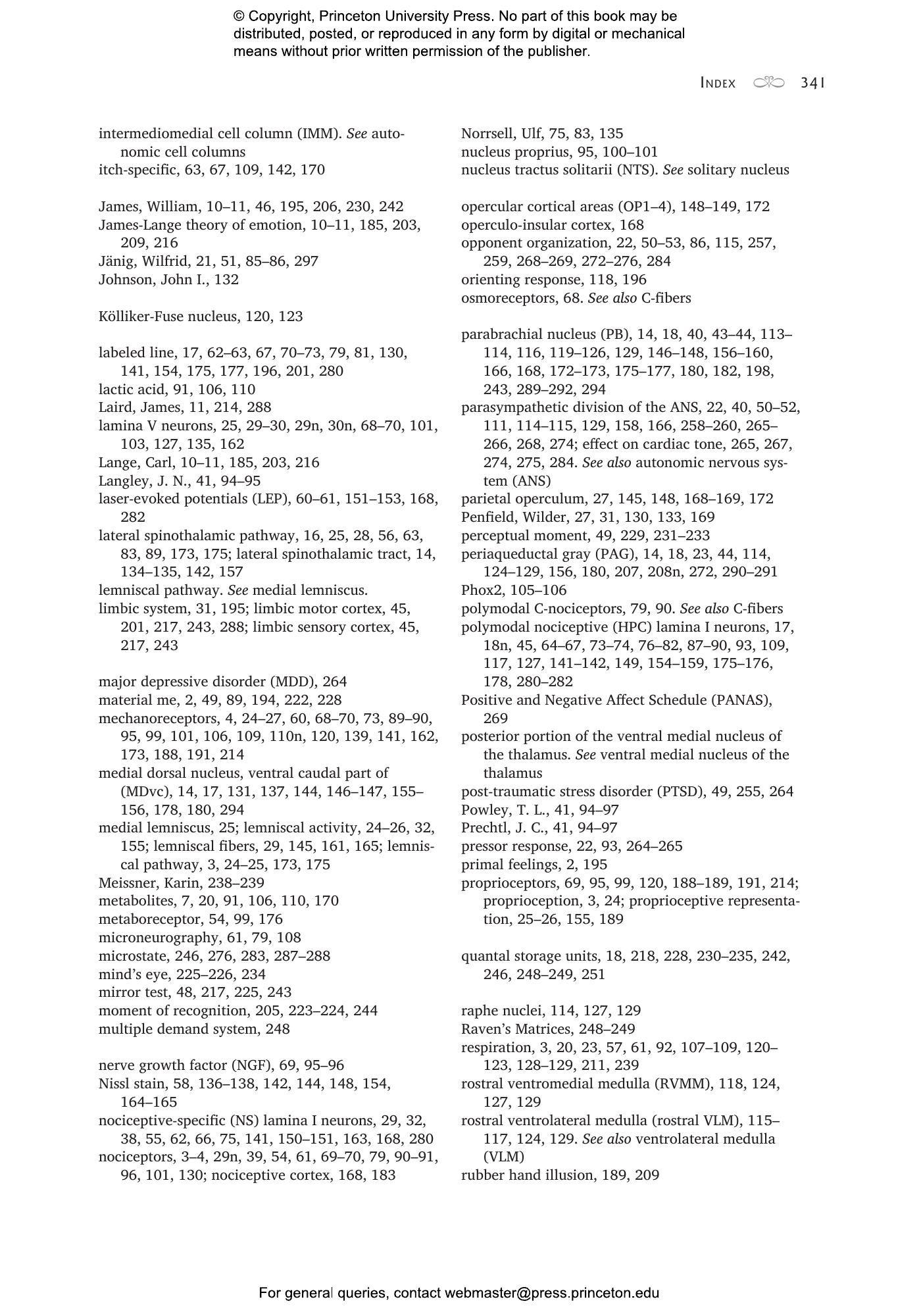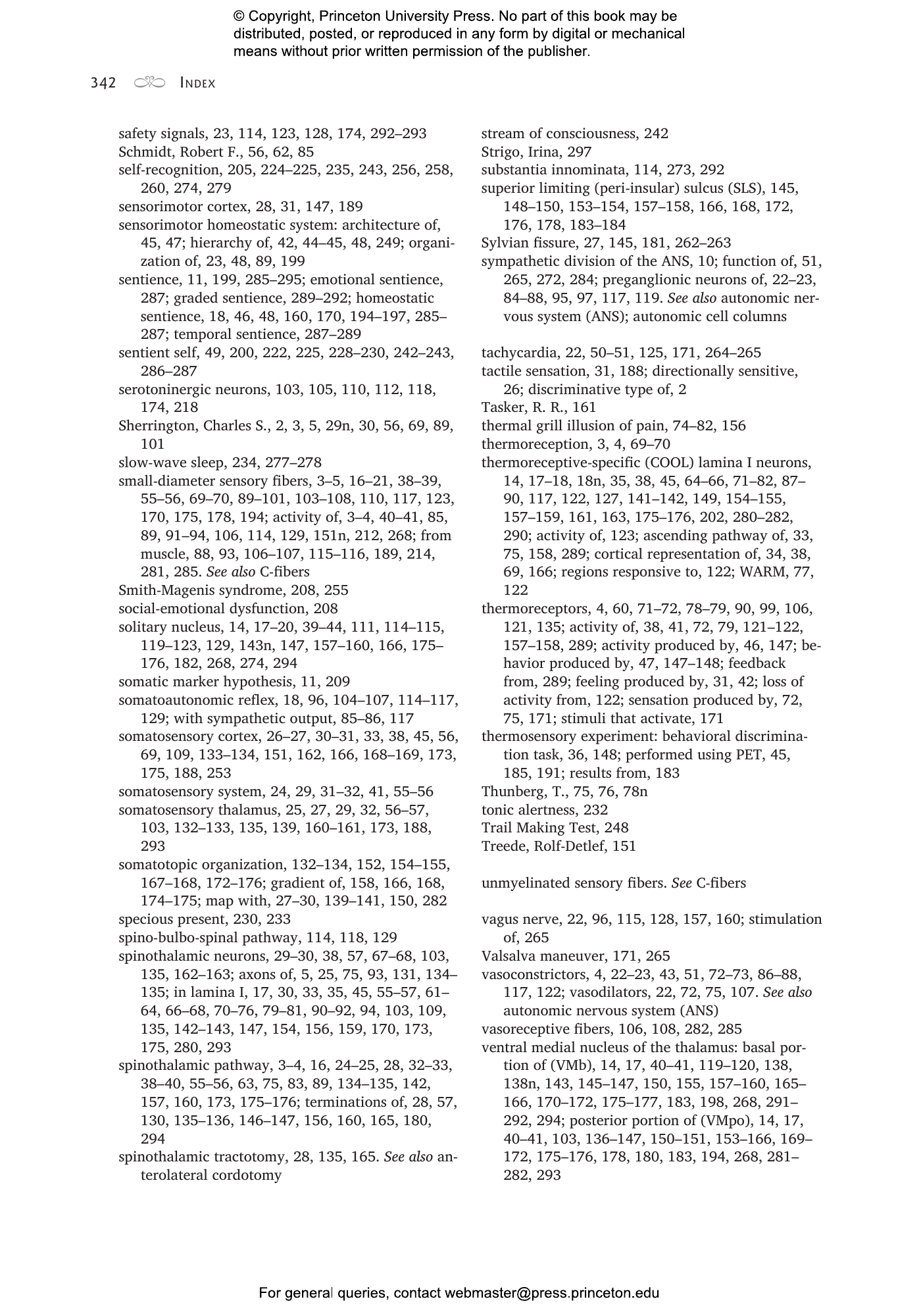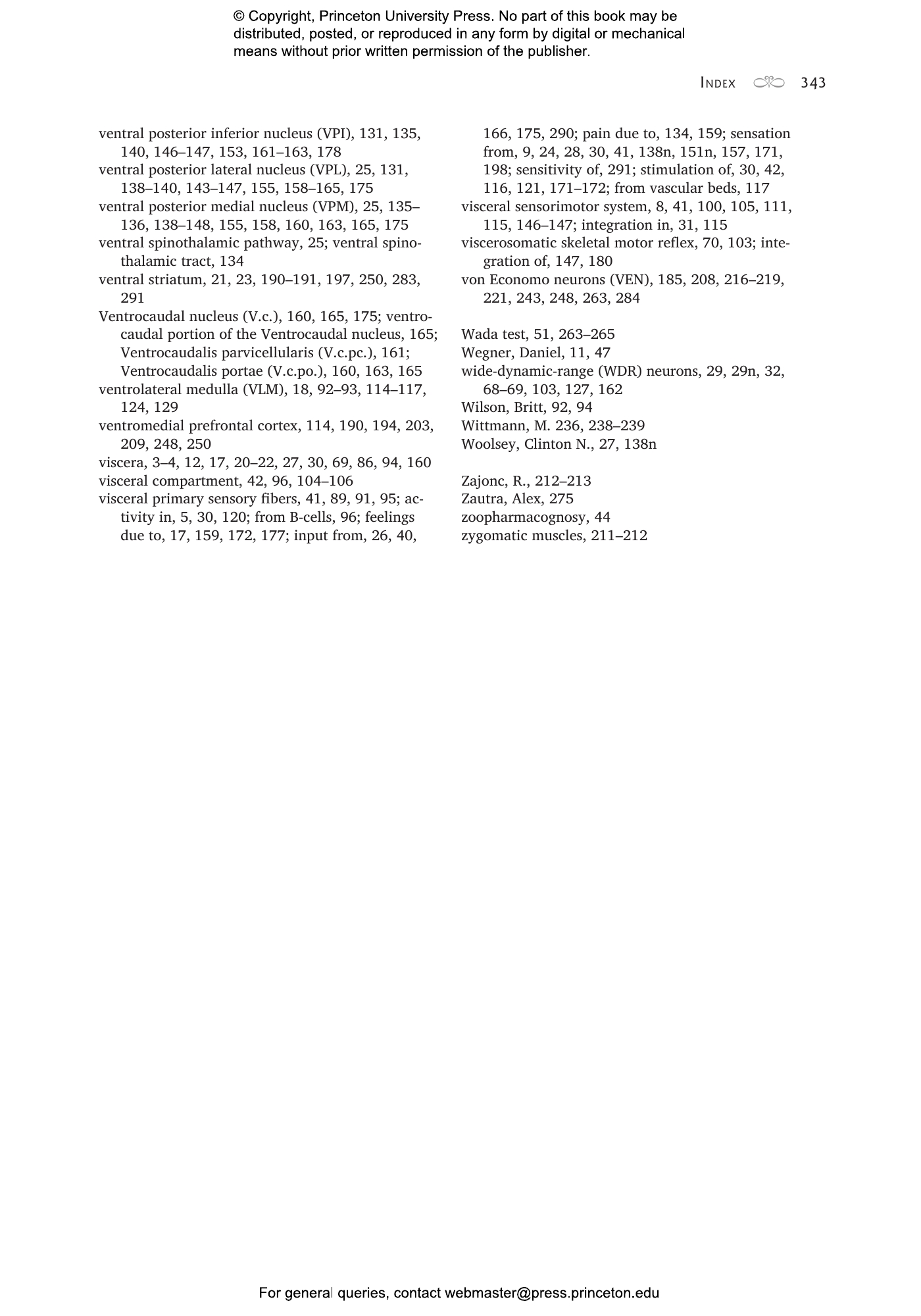How Do You Feel? brings together startling evidence from neuroscience, psychology, and psychiatry to present revolutionary new insights into how our brains enable us to experience the range of sensations and mental states known as feelings. Drawing on his own cutting-edge research, neurobiologist Bud Craig has identified an area deep inside the mammalian brain—the insular cortex—as the place where interoception, or the processing of bodily stimuli, generates feelings. He shows how this crucial pathway for interoceptive awareness gives rise in humans to the feeling of being alive, vivid perceptual feelings, and a subjective image of the sentient self across time. Craig explains how feelings represent activity patterns in our brains that signify emotions, intentions, and thoughts, and how integration of these patterns is driven by the unique energy needs of the hominid brain. He describes the essential role of feelings and the insular cortex in such diverse realms as music, fluid intelligence, and bivalent emotions, and relates these ideas to the philosophy of William James and even to feelings in dogs.
How Do You Feel? is also a compelling insider’s account of scientific discovery, one that takes readers behind the scenes as the astonishing answer to this neurological puzzle is pursued and pieced together from seemingly unrelated fields of scientific inquiry. This book will fundamentally alter the way that neuroscientists and psychologists categorize sensations and understand the origins and significance of human feelings.
A. D. (Bud) Craig is the Atkinson Research Scientist at the Barrow Neurological Institute, and is appointed as an adjunct research professor of cellular and molecular medicine at the University of Arizona College of Medicine, and an adjunct research professor of psychology at Arizona State University.
"This fascinating book is truly a must-read for anyone interested in the biological underpinnings of human perception. Craig integrates evidence from neuroscience, psychology, and psychiatry to present new insights into how our brains enable us to experience the range of sensations and mental states known as feelings. Readers won't just learn about captivatingly novel findings, but will enormously enjoy the sheer elegance of Craig's thought."—Nikos K. Logothetis, Max Planck Institute for Biological Cybernetics
"An engaging and uniquely personal perspective on the neurobiology of feelings. One gains a clear, comprehensive, and integrative view of the evolution and future of the field through the lens of a creative neuroscientist and scholar."—Helen S. Mayberg, Emory University School of Medicine
"In this provocative and deeply creative book, Craig shares his journey of scientific discovery to reveal an insight that is both simple and sweeping: the nervous system contains a sensory pathway that is built for regulating homeostasis, and it functions as a fundamental, organizing feature of the mind. Many of the psychological phenomena that we think of as independent and separate—metabolism, emotion, stress, pain, and time perception—are all united, in one way or another, by this sensory pathway. After reading this book, you will think differently about the nature of consciousness, and, ultimately, what it means to be human."—Lisa Feldman Barrett, University Distinguished Professor of Psychology, Northeastern University
"In this engaging book, Craig develops a revolutionary new approach to how we think about emotions. How Do You Feel? provides a compelling and comprehensive view of a major shift in the field. It reflects Craig's almost encyclopedic knowledge, and is an impressive collection and integration of scientific facts."—Martin P. Paulus, University of California, San Diego
